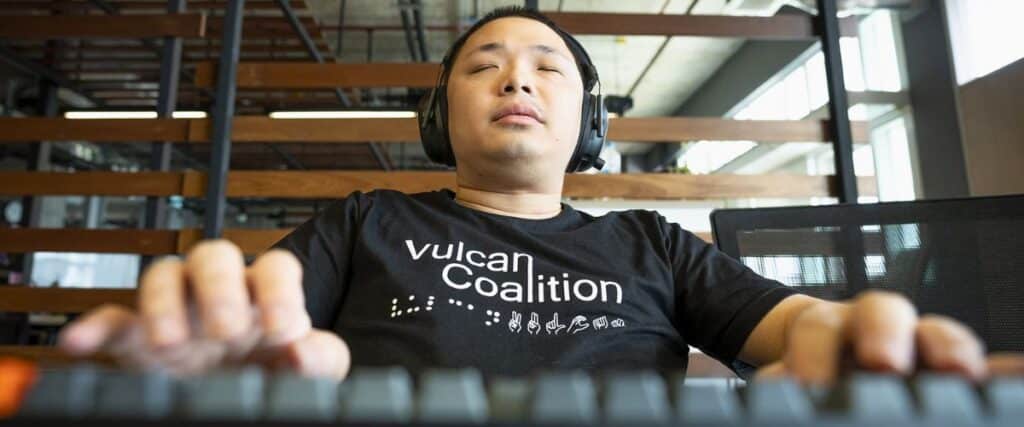Vulcan Coalition, an AI startup in Thailand, is making significant strides in employing individuals with disabilities, with over 90% of its workforce consisting of people with visual or mobility impairments, through a unique hiring model.
In Thailand, an artificial intelligence (AI) startup has pioneered a groundbreaking approach to employment by harnessing the talents of individuals with disabilities. Vulcan Coalition, based in Bangkok, is leading the charge, employing over 90% of its workforce from this often overlooked demographic, offering them meaningful roles while providing valuable AI services.
This unique initiative has emerged as a response to the profound challenges faced by people with disabilities when seeking employment. Globally, these individuals encounter significant barriers, with up to 90% of working-age people with disabilities in developing countries remaining unemployed. Even in industrialised nations, this figure hovers between 50% and 70%.

For many job seekers with disabilities, initial job inquiries often lead to rejection once their disabilities are disclosed. This systemic bias contributes to financial disparities, with one in four people with disabilities living in low-income households.
Vulcan Coalition has taken a transformative approach by actively engaging this demographic in various roles within their organisation. The startup, founded in 2017, lists around 500 employees with disabilities who are distributed across Thailand. Their work encompasses AI-powered services such as customer support chatbots, software for detecting signs of depression in employees, and data labelling for machine learning and AI algorithms. These employees also take on positions as team leads, trainers, and engineers.
To overcome the challenge of accommodations required for workers with disabilities, Vulcan has devised a unique hiring model. Thai law mandates companies to employ one person with a disability for every 100 employees, but some opt to pay a fee to circumvent this requirement. Vulcan addresses this by offering companies a partnership: they contract Vulcan to hire employees with disabilities, who then contribute to the startup’s AI projects. In return, Vulcan grants these business partners access to Vulcan applications, incentivising them to outsource their hiring through Vulcan instead of simply paying a government fee.
This approach not only allows Vulcan to specialise in employing people with disabilities but also helps other Thai companies meet their hiring quotas. Vulcan’s mission is clear: to be a role model and demonstrate that everyone, regardless of disability, can find meaningful employment aligned with their abilities.
Advocates for the employment rights of people with disabilities stress that most accommodations are low-cost or even cost-free for employers. Flexibility in working hours, remote work options, accessible facilities, and supportive work environments can accommodate diverse needs.
Vulcan’s commitment to inclusivity extends to its embrace of remote work, offering a larger talent pool compared to in-office requirements. Such inclusive practices, when adopted broadly, have the potential to boost a country’s GDP significantly, as per estimates from the International Labour Organisation.
Featured banner image credit: news.microsoft.com
Related Articles
Thailand and Vietnam Aim for US$25 Billion Bilateral Trade by 2025
Female Tech Founder Builds Thailand’s First Mental Health App, Reaches 63,000 People





